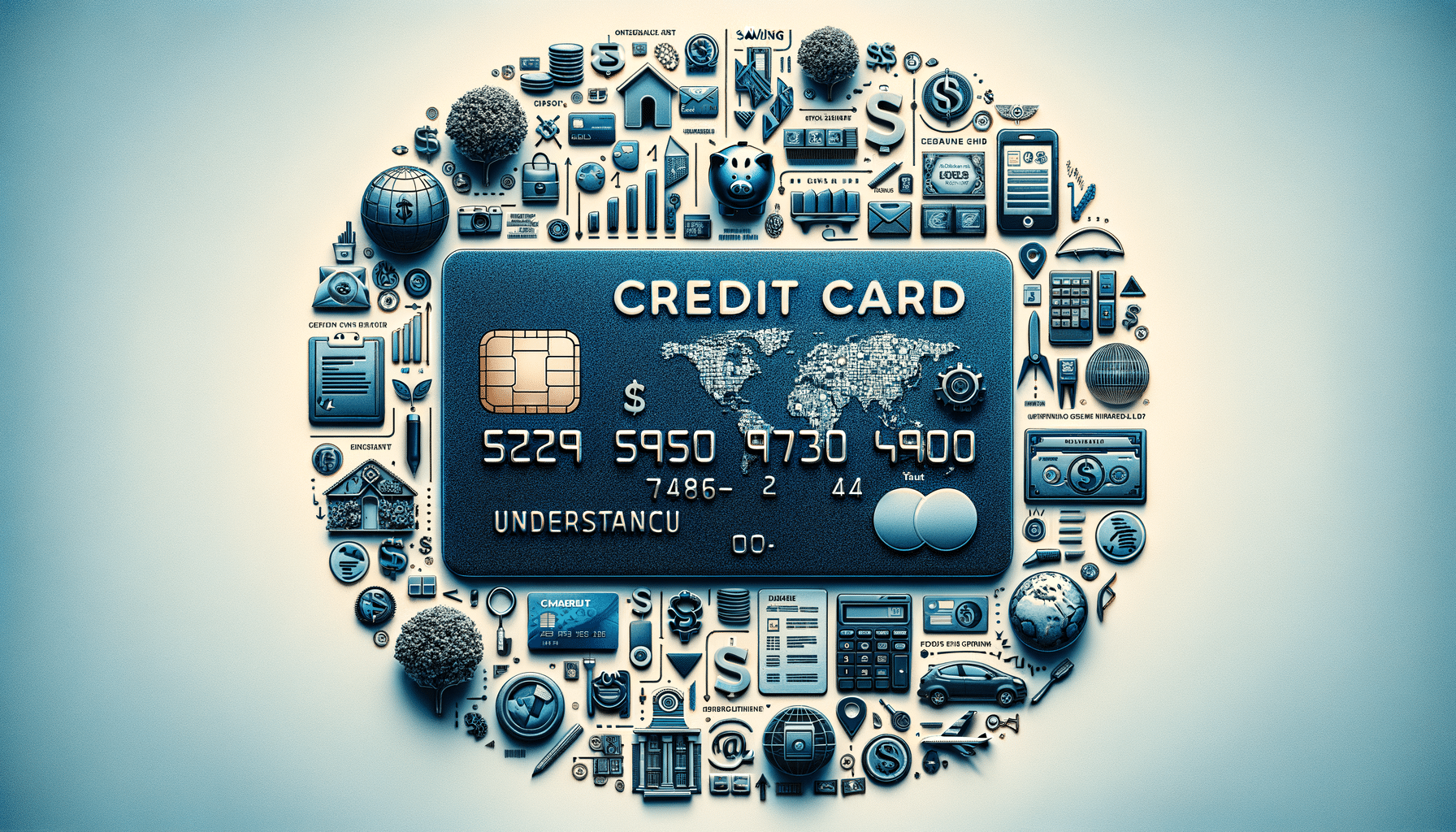Understanding Credit Cards: A Comprehensive Guide to Making Smart Financial Choices
Choosing the right credit card can help you manage expenses, earn rewards, and build your financial future. With options for cashback, travel perks, and low interest rates, you can compare different cards and select one that suits your lifestyle and financial goals.

Introduction to Credit Cards
Credit cards have become an integral part of modern financial management, offering not only a convenient way to make purchases but also a tool to build credit history and earn rewards. Understanding the nuances of credit cards can help you make informed financial decisions, whether you’re a seasoned cardholder or new to the world of credit. With a wide array of options available, from cashback cards to travel rewards, selecting the right card can significantly impact your financial health.
Credit cards offer several advantages, such as the ability to make purchases without immediate cash outflow, thereby providing a grace period for payment. They also come with features like fraud protection and credit score building, which can be crucial for long-term financial planning. However, it’s essential to be aware of the potential pitfalls, such as high-interest rates and fees, which can lead to debt if not managed properly.
Types of Credit Cards
When it comes to credit cards, one size does not fit all. There are various types of credit cards designed to meet different needs and preferences. Some of the most common types include:
- Cashback Credit Cards: These cards offer a percentage of your spending back as cash rewards. They are ideal for everyday purchases and can help you save money on routine expenses.
- Travel Rewards Credit Cards: Perfect for frequent travelers, these cards offer points or miles that can be redeemed for flights, hotel stays, and other travel-related expenses.
- Balance Transfer Credit Cards: These cards allow you to transfer existing debt from one card to another, typically with a lower interest rate, making it easier to pay off high-interest debt.
- Secured Credit Cards: Designed for individuals with no credit history or poor credit, these cards require a cash deposit as collateral. They are an excellent way to build or rebuild credit.
- Student Credit Cards: Tailored for college students, these cards often come with lower credit limits and fewer fees, helping young adults start their credit journey.
Choosing the right type of credit card involves evaluating your spending habits and financial goals. For instance, if you travel frequently, a travel rewards card might be more beneficial than a cashback card.
Understanding Credit Card Interest Rates and Fees
Interest rates and fees are critical factors to consider when choosing a credit card. The Annual Percentage Rate (APR) is the interest rate charged on unpaid balances. It’s important to understand whether the card offers a fixed or variable APR, as this can affect how much interest you pay over time.
Credit cards may also come with various fees, such as annual fees, late payment fees, and foreign transaction fees. While some cards offer no annual fees, others might charge a fee in exchange for more extensive rewards or benefits. It’s essential to weigh these costs against the potential rewards to determine if a card is worth the expense.
For those who carry a balance month-to-month, finding a card with a low-interest rate can save significant amounts of money. Conversely, if you pay off your balance in full each month, the interest rate may be less of a concern, allowing you to focus on maximizing rewards and benefits.
Building and Maintaining a Good Credit Score
Your credit score is a crucial component of your financial health, influencing your ability to secure loans, rent apartments, and even get hired for certain jobs. Credit cards play a significant role in building and maintaining a good credit score, as they demonstrate your ability to manage credit responsibly.
To build a strong credit score, it’s important to:
- Make payments on time, as payment history is a significant factor in credit scoring models.
- Keep your credit utilization ratio low, ideally below 30% of your total available credit.
- Avoid opening too many new accounts in a short period, as this can negatively impact your score.
- Regularly check your credit report for errors and dispute any inaccuracies you find.
By following these practices, you can improve your credit score over time, opening doors to better interest rates and financial opportunities.
Choosing the Right Credit Card for Your Needs
Selecting the right credit card requires a careful assessment of your financial situation and goals. Start by identifying your primary purpose for the card, whether it’s earning rewards, building credit, or managing existing debt. Compare different card options based on their features, such as interest rates, fees, and rewards programs.
Consider your spending habits and lifestyle. If you frequently travel, a card offering travel rewards and perks like airport lounge access might be beneficial. For everyday purchases, a cashback card could provide the most value. Additionally, if you’re looking to pay down debt, a balance transfer card with a low introductory APR could be advantageous.
Ultimately, the right credit card is one that aligns with your financial goals and helps you manage your money effectively. Take the time to research and compare options, and don’t hesitate to reach out to financial advisors or use online resources for guidance.